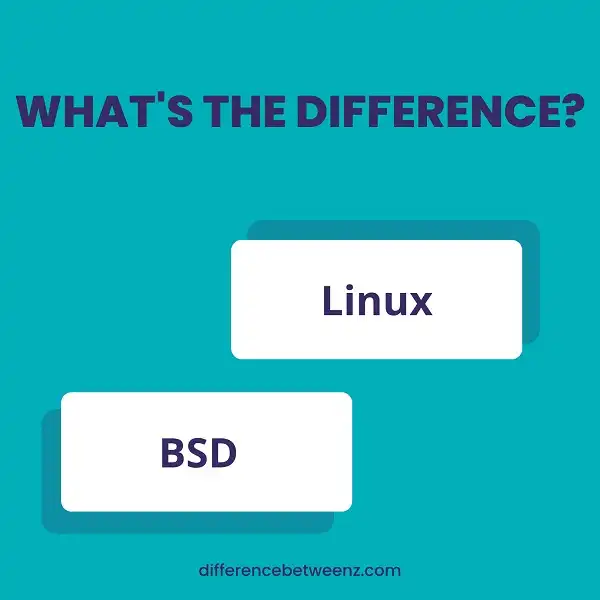There are many different types of operating systems in the world, but two of the most popular are BSD and Linux. While they share some similarities, there are also some key differences between them. In this blog post, we’ll explore those differences so you can decide which one is right for you.
What is BSD?
BSD is a computer operating system descended from Research Unix via the Berkeley Software Distribution (BSD)
– BSD was initially based on Unix Version 7 but was later updated to incorporate features from AT&T’s System III and System V.
– Today, BSD is widely used as the basis for many popular open-source operating systems, such as FreeBSD, OpenBSD, NetBSD, and DragonFly BSD.
– In addition, Apple’s macOS is also based on a derivative of BSD.
– BSD is known for its high level of security, stability, and flexibility.
– For these reasons, it is often used in mission-critical applications such as servers, routers, and database systems.
– BSD is also a popular choice for embedded systems due to its small footprint and low resource requirements.
What is Linux?
Linux is a computer operating system that was first developed in the early 1990s. It is based on the Unix operating system and is used by many large organizations, including Google, Facebook, and Amazon. Linux is free and open-source, which means that anyone can access the source code and improve upon it. This has led to a large and active community of developers who contribute to the development of Linux. Linux is highly customizable, which means that it can be adapted to meet the needs of any user or organization. Linux is also known for its security features, which make it a popular choice for servers and other critical systems.
Difference between BSD and Linux
- One of the most common questions asked in the world of open-source software is “What is the difference between BSD and Linux?” Both operating systems have their own distinct history, development process, and userbase. And while they may share some similarities, there are also a number of key differences that set them apart.
- BSD is short for Berkeley Software Distribution. It was originally developed at the University of California, Berkeley in the late 1970s. Today, it is used as the basis for a number of popular open-source operating systems, including FreeBSD and OpenBSD.
- Linux is a bit younger than BSD, having been first released in 1991 by Linus Torvalds. Unlike BSD, which is primarily used on servers and other large-scale systems, Linux has found its way into a wide variety of devices, from smartphones to web servers to desktop computers.
Conclusion
In conclusion, there are a few key differences between BSD and Linux. While they share some similarities, such as being open-source operating systems, BSD is more focused on security while Linux is more focused on functionality. Additionally, the licensing model for BSD is more permissive than that of Linux. If you’re choosing an open-source operating system for your business or personal use, it’s important to understand these distinctions in order to make the best decision for your needs.


